Advertisement
Review
An Immersive Approach, Apollinaire's 'Three Sisters' Invites The Audience Onstage And Inside
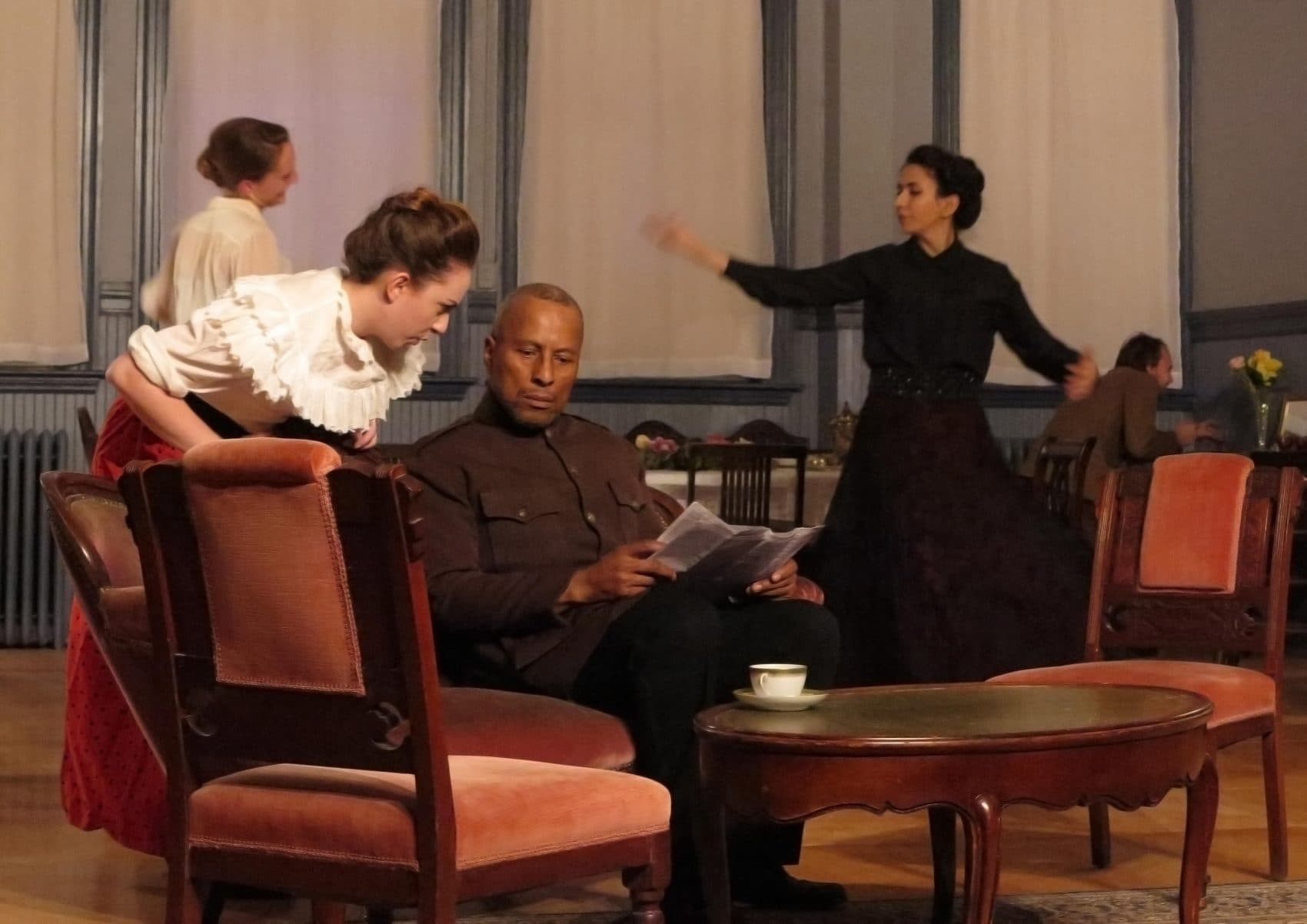
Audience members become intimate guests in the home of the titular “Three Sisters” in Apollinaire Theatre Company’s brisk, immersive production of the Tracy Letts adaptation of the classic Chekhov play. The sisters — and their brother — maintain a large house in a provincial town, where they entertain locally-stationed soldiers and long for life in Moscow. Audience members become intimately involved in their lives, and their house, through a novel approach: Rather than seeing a single performance space reset between acts, the audience migrates from room to room, following the characters as the play unfolds.
We begin in the parlor of the home shared by sisters Olga, Masha, and Irina, and their brother Andrey. The well-appointed space — designed, as are all of the scenic environments, by Danielle Fauteux Jacques — includes a long dining table at the far end; islands of armchairs, tables, and sofas; a scattering of lamps; and, lining three of the walls, audience seating consisting of closely-set chairs. The result is an intimate theatrical experience that might be a touch claustrophobic, but the show is worth the slightly cramped seating; we, like the soldiers and other characters who are the sisters’ frequent visitors, gain a sense of familiarity with the members of the household — a sense that only grows more intense as the audience migrates deeper into the home’s inner precincts and closer to the family’s increasingly dysfunctional heart.
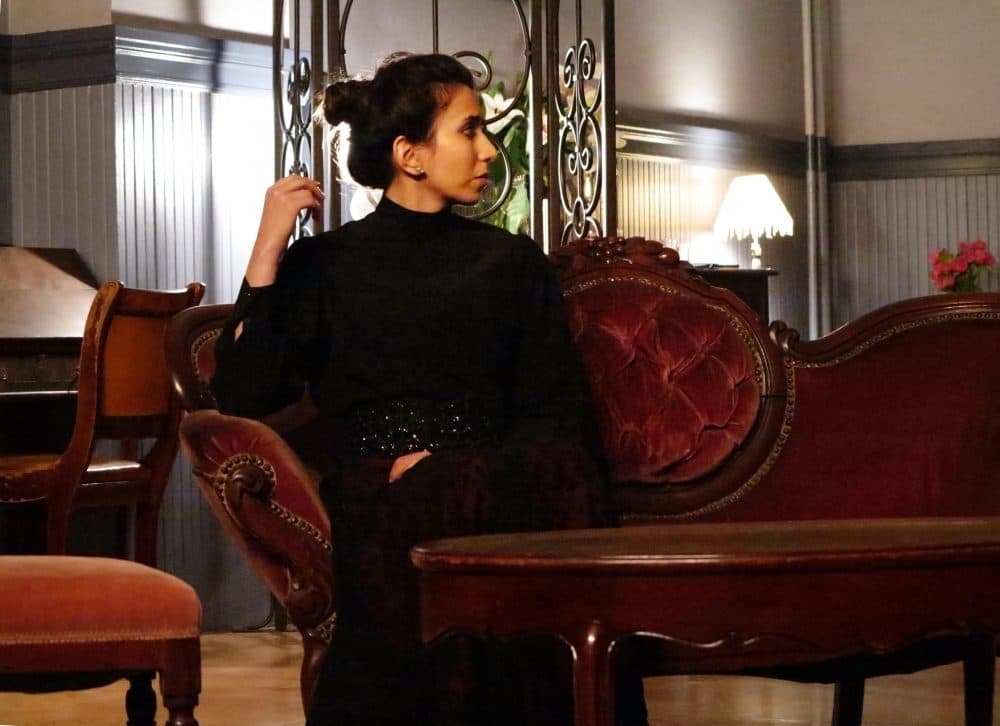
The play begins on a day with double meaning for the sisters. For the elder two, Olga (Becca A. Lewis, dignified and nuanced) and Masha (Deniz Khateri, projecting layers of resentment and disaffection), it’s a day of mourning — the anniversary of their father’s death a year ago. Dressed in black, they seem prepared to dwell even longer in a state of bereavement, and they have various other reasons for it. Olga works as a teacher and suffers migraines as a result of job stress; she’s also feeling the passage of time and is ever more conscious that if she hasn’t married yet, she probably never will. Masha, on the other hand, was betrothed young — to a nervous academic named Kulygin (Brooks Reeves, comically excellent) — and is now trapped in a loveless and listless marriage.
But to Irina (a buoyant Siobhan Carroll), the youngest, it’s a day of fresh beginnings. Dressed in white and enjoying the attentions of the house full of visitors — especially her suitor, Baron Tusenbach (Michael John Ciszewski, who summons an equally youthful energy) — Irina yearns for a more constructive life and a future of self-improvement through work. Tusenbach, as though taking up the thread from her, expresses similar desires; he’d like to leave the military and take up a trade… bricklaying, perhaps.
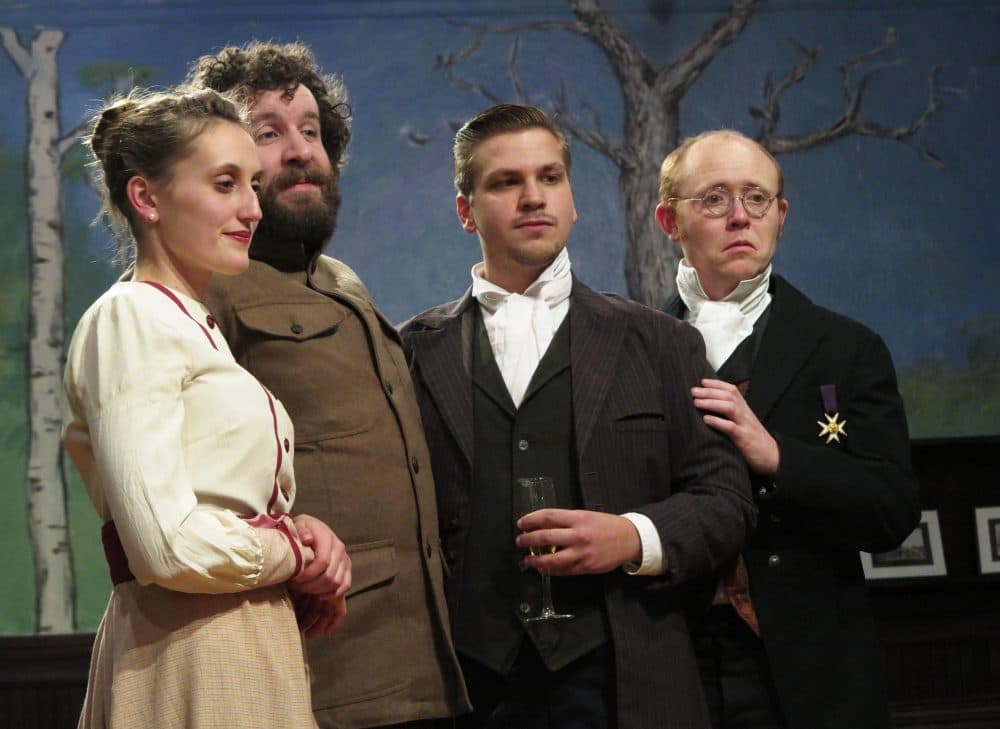
Their focus on such plans feeds into the general conversation, in which the guests imagine a glorious future for all humanity. It’s a future that might not arrive for centuries, but they take pleasure in the thought that they can help lay its groundwork. Those guests include an esteemed officer named Vershinin (Juan Carlos Pinedo) — an old family friend, whom the sisters remember from years before in Moscow as a young, love-struck major. Also on hand are army doctor Chbutykin (Paul Benford-Bruce), an alcoholic on the wagon who is headed for a major existential crisis (this is Chekhov, after all, so you knew it had to happen), and Solyony (Jon Vellante, intense in the role and verging on scene chewing), a young officer who goads Tusenbach with mocking hostility. Nobody declares herself in mourning for her life, a la that other Masha in “The Seagull,” but even in the play’s early scenes it’s clear that no one’s very happy. Even Andrey (Evan Turissini), reputed to be a “genius,” struggles to reconcile his ambitions for a future in academia with his gambling problems and a creeping sense of inertia.
Then there’s Natasha (Olivia Dumaine), for whom inertia is impossible. Andrey proposes to Natasha on Irina’s birthday. When the story jumps forward a year or so to a time after Andrey’s marriage to Natasha, his new wife is already in the process of displacing the sisters and dominating the household. With a reflexive self-assurance, she shifts and shuffles where the family sleeps, and brings a fiercely oppressive tenor to her dealings with the servants.
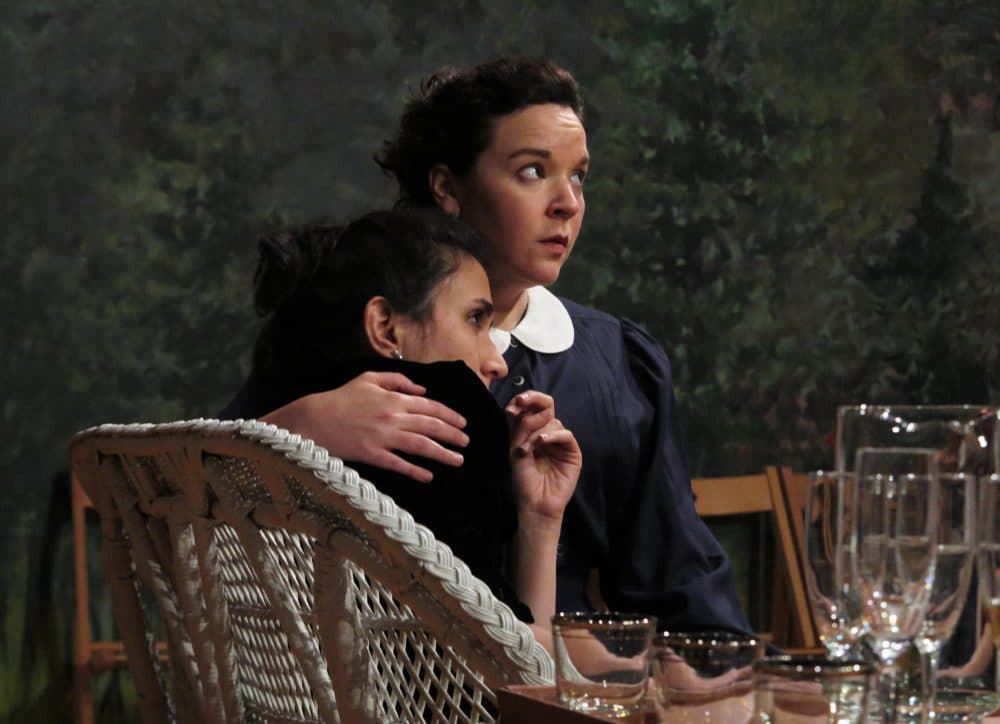
Letts’ adaptation preserves those things that mark a play as Chekhov’s own, with self-absorbed characters talking past one another while a sense of impending tragedy slowly gathers. But Letts also loosens the language a little, as when Tusenbach, describing Vershinin’s marriage, says that he’d “already have split” were he in a marriage as exasperating as Vershinin’s. Elsewhere, Letts plainly enjoys Chekhov’s ironic, gallows humor wordplay, as when one sister — in a frenzy of existential dread — abandons the idea of playing a part in the arrival of a brighter future and exclaims, “That’s how we’ll be remembered: We’ll be forgotten!” Most startling is the way a few choice four-letter expletives fly throughout the play, but these sudden vulgarities don’t feel gratuitous; they speak to each character, and erupt from psychic pockets of exhaustion and irritation.
Most striking about this production, though, is the way it literally moves the audience. Intermission provides a natural break for the first shift to take place. The audience moves to the bedroom shared by Irina and Masha — an inherently intimate space — and it’s here that fault lines only hinted at heave up, stark and sharply defined, with hidden attractions revealed, infidelities exposed and the illusion of a brighter future collapsing into a realization that, people being people, the future is probably going to amount to nothing but more of the same.
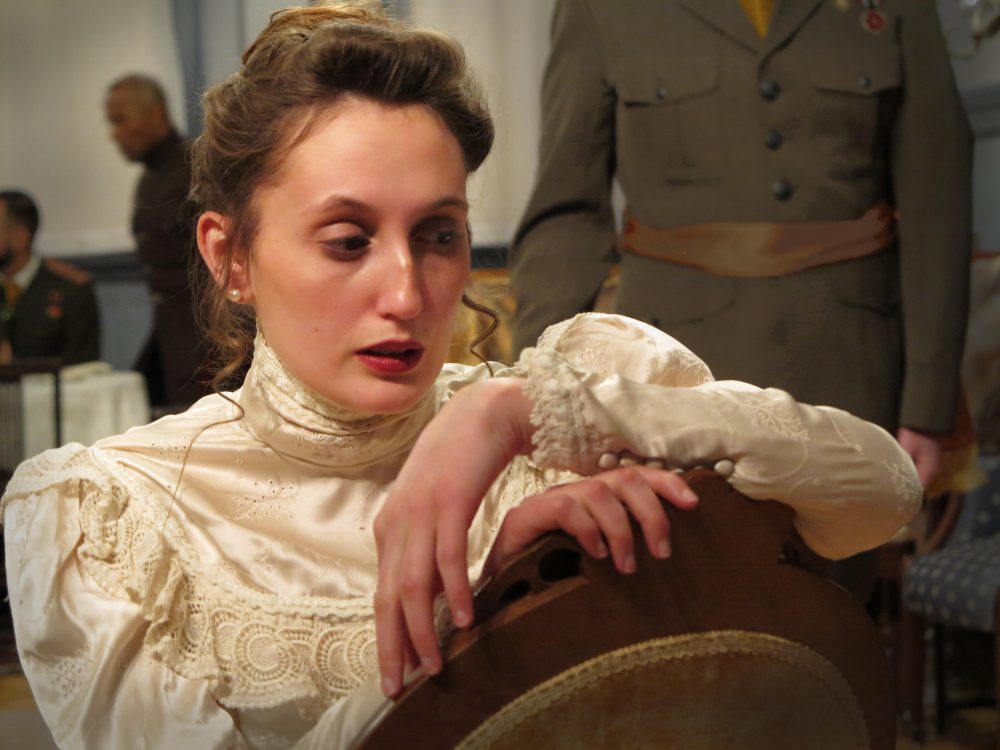
Finally — and in a less natural manner that feels a little more disruptive — there’s yet another mass relocation to a space upstairs, where in a gesture of extravagant scenic design the walls of the room have been painted (by scenic artist Demetrius Fuller) to suggest trees in summery foliage (with the exception of a symbolically charged dead tree, the painted image of which dominates a wall of its own). Outdoor furniture and a brighter lighting scheme complete the setting.
Physically shifting the audience from space to space, rather than shifting our perceptions of the space through scenic redressing, allows us to be engaged without forcing overt audience participation, and we’re more invested as a result. The show gallops by thanks to Letts’ energetic, vernacular take on the play’s language and the cast’s energetic performances, but the production stands out by leaving you with the feeling that you have been more than an observer — you’ve taken part.
“Three Sisters” runs through Jan. 21 at Apollinaire Theatre Company in Chelsea, Massachusetts.